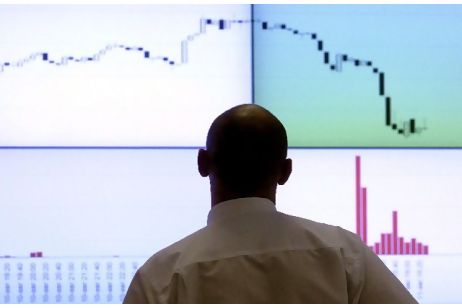
Putin Ignores the Gathering Economic Storm
Publication: Eurasia Daily Monitor Volume: 8 Issue: 157
By:

The volatile turbulence that battered the world economy last week should have passed Russia by, but it did not. Indeed, Russia is not burdened by a massive debt, is spared political feuds about budget cuts and is not even exposed to the looming Greek default; nevertheless, its stock exchange fell deeper than most. The Dow Jones index, for that matter, opens this Monday on about the same level where it was a week ago, while the RTS slipped from the plateau of about 11,600 to a low of 9,600 and barely bounced to 9,900 on Friday (Kommersant, August 13). Certainly, the speculative games are only a symptom, and not necessarily a reliable one, of the real economic trends, but statistics suggest that Russia’s economic growth slowed down in the second quarter, and experts argue that the country is entering into the new phase of turmoil, for which it is not any better prepared than it was in mid-2008 (www.newsru.com, August 10; Nezavisimaya Gazeta, August 12).
Most world leaders frequently hold emergency sessions of their cabinets and try to convince opposition parties to accept austerity packages, but Prime Minister Vladimir Putin remains supremely relaxed. He made a few headlines with a loose remark about US “parasitism” on the global economy and advised scared markets to calm down, but obviously sees no burning need in his trademark “manual management” (RIA Novosti, August 1; Kommersant, August 10). It was his diving in the Black Sea that received most media attention, when he discovered two ancient amphorae in a shallow bay that had been thoroughly searched by archeologists and combed by the security service, a feat that has given much joy to Russian bloggers (www.besttoday, August 13). Perhaps playing these PR-games is indeed the best Putin could do in a situation where the US dollar and the Euro are seriously unstable, but the ruble is “unpatriotically” depreciating against both (www.gazeta.ru, August 12).
It is exactly Putin’s confident steering that has made the Russian economy so vulnerable to the swings of markets’ moods because he took particular pride in rising pensions and other social programs, which has made the budget seriously over-loaded with irreducible obligations. In the next few years, steep increases of funding for law enforcement and rearmament are earmarked, but the stagnation of revenues guarantees the execution of severe cuts in populist and militarist commitments, which could hardly be postponed longer than a few months after the presidential elections in spring 2012 (www.gazeta.ru, August 11). The foreboding in the middle classes translates into the deepening and widening urge to move away from the crumbling “stability” (Moskovskiy Novosti, August 12). It also drives the discontent with the too generous federal funding for the North Caucasus where the smoldering civil war has become a profitable business for local elites (Vedomosti, August 3).
Russian corporate debt is now higher than it was in 2008 and the reserve fund is depleted, so the solvency is entirely a function of high-and-rising petro-revenues, which are in fact flat with a tendency to fall (www.newsru.com, August 8). Russian oil companies are bracing for lower profit margins, but it is the almighty Gazprom that feels threatened by the shrinking demand in Europe and the falling prices on the spot market (RBC Daily, August 12). Sticking to the letter of its treasured long-term contracts, Gazprom has shown so little flexibility on prices that now even its trusted German partner E.ON is taking it to court for abusing its monopolistic position (Ekspert, August 1; Vedomosti, August 11). Desperate demands for price cuts come also from Ukraine where former Prime Minister Yulia Timoshenko is even behind bars for signing an allegedly detrimental gas deal with Russia in January 2009 (RIA Novosti, August 6). Moscow is not impressed with this politicized investigation, and the meeting between President Dmitry Medvedev and Viktor Yanukovych in Sochi last week brought no compromise (Kommersant, August 12). Russia has no interest in pushing Ukraine to bankruptcy and it is not even pressing Putin’s proposal for Gazprom’s “big-brotherly” takeover of Ukrainian Naftogaz, it appears to pursue the simple aim of revenue maximization.
This reduction of the political agenda to securing the inflow of petro-dollars shows that Russian rulers believe that in the dawning era of market volatility and “quantitative easing” of major currencies the value of oil and gas as secure assets is set to grow. This goes against Medvedev’s “modernization” discourse based on the lesson from the painful contraction of 2008-2009, which pointed to the unacceptable risk of over-dependency upon energy exports. The key pre-condition for modernization is investment, but entrepreneurs showed only superficial enthusiasm for Medvedev’s “innovations,” while strategically moving their money out of Russia. In the last week, this trickling-out turned into a current, as only the investment funds evacuated from the Russian market more than $400 million (Kommersant, August 13). Even in the energy sector, modernization is not happening and the failed attempt to build the “Bolshoi Petroleum” alliance between the BP and Rosneft, torpedoed by vicious business-political intrigues, testifies to that (RBC Daily, August 11).
Anxiety about Russia’s entry into a new phase of economic crisis is inevitably influenced by the reflections on the collapse of the USSR, because this week marks the twentieth anniversary of the military putsch that sought to rescue the imploding super-power and instead precipitated its demise. Public opinion remains divided and more sour than celebratory about that event, and Putin is hardly going to orate about it, but it has definitely left a deep scar on the national psyche (Ekho Moskvy, August 11). The shock from seeing tanks in Moscow streets has long been erased by impressions from too many other tanks burning in the squares of Grozny or rolling towards Tbilisi, but the sinking feeling of living through a state failure is back. It was the military-industrial complex that bankrupted the oil-based Soviet economy in the 1980s, and now it is the corrupt bureaucracy that proceeds along the same track. Putin is both the master and the servant of this system that has extracted from Russia value exceeding the limits of economic self-reproduction, and he is set to preside over the unraveling.




